-
Why Do Dentists Encourage You to Have Your Wisdom Teeth Removed?
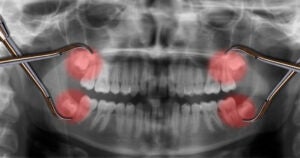
The human mouth goes through numerous changes over the years. For many people, one of the most memorable milestones is the appearance of the third molars around ages 17 to 21. “Wisdom teeth” are so named because they are the final teeth to appear and come in at a mature age.
When wisdom teeth erupt through the gums correctly, they can help with chewing. However, while there’s no definitive rule, most people have their wisdom teeth removed. Why is this? And how do you know if you should keep your wisdom teeth or not?
Many situations warrant having your wisdom teeth removed. Here are the most common reasons your dentist may encourage you to make this choice.
Fully Impacted Wisdom Teeth
An impacted tooth fails to erupt through the gums, meaning it remains covered by gum tissue. This may occur if your mouth is too small for the tooth to emerge. Dentists usually recommend removing impacted wisdom teeth because trapped bacteria could cause painful cysts or abscesses to form.
Partially Impacted Wisdom Teeth
A partially impacted tooth erupts partway through the gums. Dentists almost always advise removing wisdom teeth in situations like this. After all, the partial eruption makes it easy for bacteria to get inside, leading to swelling, pain, and stiffness in the jaw. Tooth decay is also more likely because it’s difficult to clean a partially impacted tooth.
Overcrowding
Some willful wisdom teeth erupt fully, even if there isn’t room in the jaw. This can overcrowd your mouth and damage neighboring teeth. Your entire smile may even shift, throwing off your bite and causing jaw pain.
Necessary for Your Dental Care Plan
Your dentist may recommend wisdom teeth extraction as part of your overall oral care plan. For instance, if you’re planning to get braces soon, it’s wise (pun intended) to remove problematic wisdom teeth before you begin straightening your smile. And if your wisdom teeth come in after having braces, prompt removal prevents them from undoing all your hard work.
Other Problems
If you decide to keep your wisdom teeth for now, continue to monitor them for signs of trouble. It may become necessary to remove them if issues develop near your wisdom teeth, such as:
- Tooth, jaw, or cheek pain
- Repeated infections
- Gum disease
- Extensive tooth decay
The decision to remove your wisdom teeth isn’t always straightforward. That’s why it’s important to visit the dentist regularly. Routine oral exams and X-rays reveal what’s happening in your mouth so you can take the best course of action for your oral health.
If your wisdom teeth are giving you trouble, visit Park 56 Dental for a consultation. We offer compassionate, high-quality dentistry in the 10022 zip code area of NYC, and we’re confident we can help you make the right choice regarding your wisdom teeth. If you decide to have them extracted, rest assured that we offer sedation dentistry to make you feel more comfortable. Call us at (212) 826-2322 to set an appointment today.
-
Why Your Gums Hurt When Brushing Your Teeth
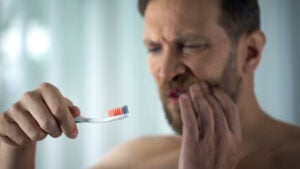
Do your gums hurt when you brush and floss? Is there blood in your toothpaste when you spit into the sink? This usually means one of two things—either you’re being too rough when you brush and floss, or you’re developing gum disease. To rule out other more serious problems, be sure to visit your dentist. Otherwise, explore these solutions to help prevent your gums from hurting when you brush your teeth.
When Your Gums Hurt Because of Rough Brushing and Flossing
It’s easy to brush too hard when you’re trying to be thorough. However, you can easily irritate your sensitive gum tissue if you scrub aggressively. Here’s how to clean your teeth while protecting your gums:
- Use a soft-bristled toothbrush.
- Brush in gentle, circular motions.
- Consider switching to an electric toothbrush.
- When flossing, follow the curve of your teeth and avoid snapping the floss against your gums or using a sawing motion.
When Your Gums Hurt Because of Gum Disease
Mild gum disease, known as gingivitis, starts when a sticky film of bacteria called plaque builds up along the gum line. Ignoring gingivitis can lead to periodontal disease and, eventually, severe periodontitis. If your gums are swollen, red, irritated, and hurt when you brush, talk to your dentist about starting treatment.
Other Reasons Why Your Gums Hurt
There are many other potential causes of painful gums, including:
- Canker sores
- Tooth abscesses
- Tobacco use, including cigarettes, vaporizers, and chewing tobacco
- Hormonal changes during puberty, menstrual cycles, pregnancy, and menopause
- Thrush, a type of yeast infection
- Ill-fitting oral devices, including braces, retainers, dentures, and mouthguards
- Chemotherapy drugs
How to Sooth Sore Gums
In addition to brushing and flossing more gently, treating gum disease, and tackling other causes of painful gums at the source, try these tips to soothe your sore gums:
- Rinse your mouth with warm saltwater.
- Rinse with mouthwash containing hydrogen peroxide.
- Take over-the-counter pain relievers.
- Apply numbing gel to the tender area.
- Avoid spicy or acidic foods to avoid further irritation.
- Eat yogurt with live cultures to balance the bacteria in your mouth.
Discuss Your Symptoms with Your Dentist
If your gums hurt or bleed for over a week, and your attempts to treat the problem at home aren’t working, it’s time to contact your dentist. A professional teeth cleaning can remove the stubborn plaque irritating your gums. Your oral hygienist may also perform a deep-clean called root planing and scaling if you have gum disease.
Don’t ignore painful gums—stop by Park 56 Dental in NYC to discuss your symptoms with our dentist. We can examine your gums and teeth and recommend the proper treatment. Our office has been voted the best dentist in New York, with over 20 years of experience serving the 10022 zip code area, so you can trust us to take great care of your smile! Call us at (212) 826-2322 to set an appointment today.
-
How Teeth Crowding Can Impact your Dental Health
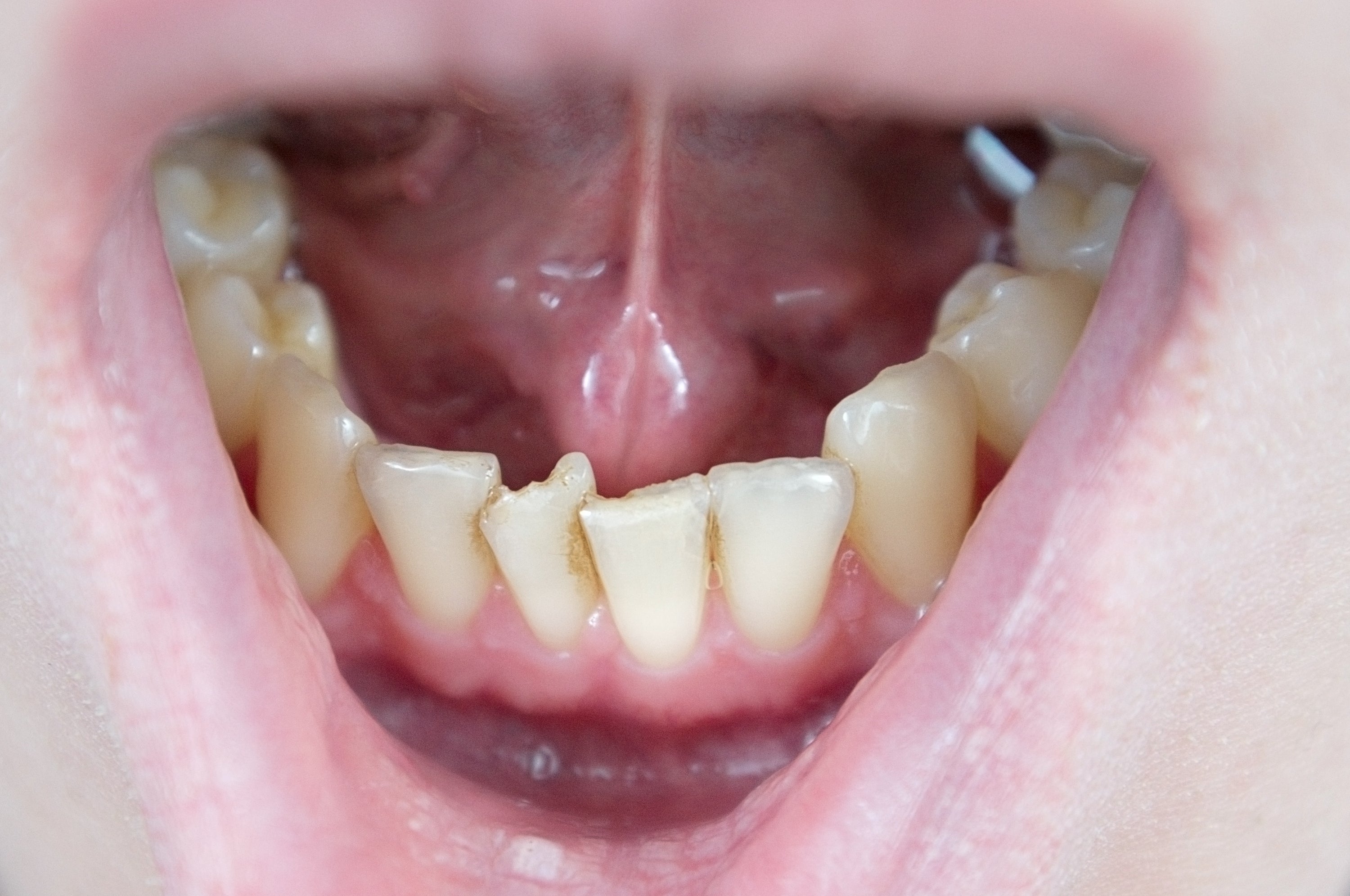
If your teeth are overcrowded, it can make you feel less confident in your smile. What you may not realize, though, is that it also has serious implications for the health of your mouth. Here are some reasons why, along with some tips to help you improve your dental health.
- It’s harder to clean overcrowded teeth. If your teeth are incorrectly spaced, you won’t be able to effectively brush and floss them. You’ll be unable to get the floss in between some of your teeth, and you won’t be able to brush every surface of your teeth. This can lead to bad breath, cavities, and health problems that occur when an overgrowth of bacteria in your mouth makes its way to other parts of the body.
- Crowded teeth can increase your risk of gingivitis. When you don’t completely remove the plaque from your mouth, it can cause gingivitis, an early stage of gum disease. The symptoms of gingivitis are red, swollen, irritated, and sometimes bleeding gums, along with bad breath.
- If your teeth are overcrowded, you may experience pain. Sometimes, when you have a crowded mouth, a tooth becomes impacted because it has no room to erupt from the gums. This impaction can also cause overcrowding, by pushing other teeth into a problematic position, which can lead to pain when you bite or chew.
- Bite problems happen when crowding causes misalignment. If your teeth aren’t lining up correctly because they’re too crowded, you won’t bite properly. This can lead to cracking, chipping, and otherwise damaging your teeth.
- Allergies may be connected to teeth crowding. This goes back to the oral care component: when you can’t properly clean your teeth, it leads to poor oral health. In turn, poor oral health has been linked to allergic rhinitis, asthma, and skin allergies.
- You’re more likely to grind or clench overcrowded teeth. This grinding and clenching, also called bruxism, can cause headaches, face pain, damage to your teeth, and temporomandibular joint (TMJ) disorders.
So, what can you do about crowded teeth? In some cases, especially with impacted teeth, you may need an extraction. Often, however, your crowded mouth can be greatly improved using orthodontia. One of the simplest and most effective ways to move teeth into the correct placement in your mouth is using Invisalign®. Talk to your dentist or orthodontist about the options that are available to you.
Whether you need simple cleaning or a specialty service like Invisalign®, choose the practice that was voted best dentist in NYC! At Park 56 Dental Group, we offer pediatric, prosthodontics, endodontics, oral surgery, Invisalign®, emergency, and sedation dentistry, all at the highest level of treatment. We serve the Midtown, Central Park, Upper East Side, Park Avenue, and all surrounding Manhattan and New York areas, with a patient-centered practice that has hours to fit your schedule. Schedule your complimentary consultation today by contacting us online or calling us at (212) 826-2322.
-
Does Coconut Oil Pulling Actually Work?
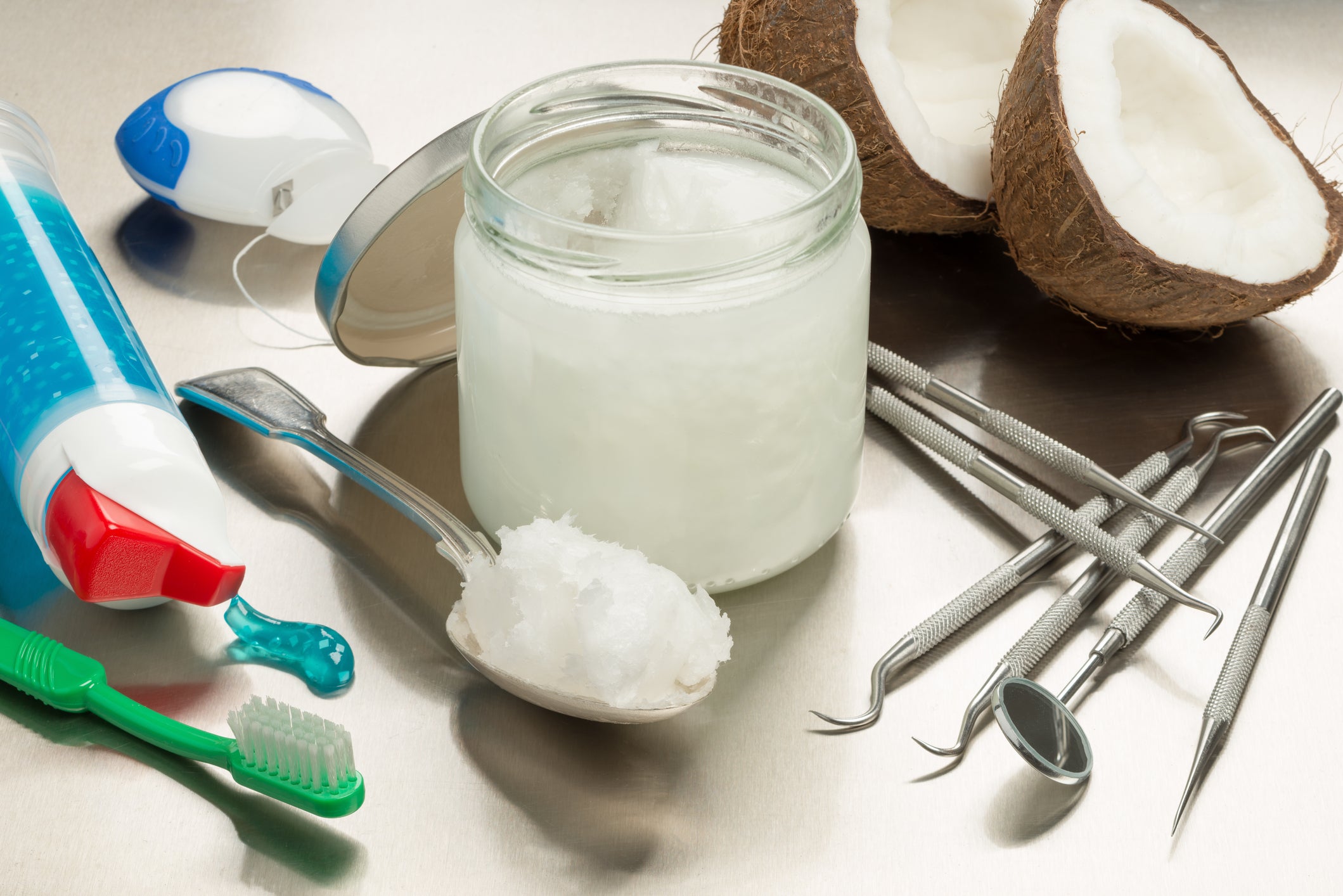
Have you heard of oil pulling? Essentially, it’s the practice of swirling oil around your mouth and then spitting it out. Why do people do this, and is it actually a good idea?
The practice of oil pulling originated as a folk remedy, part of traditional Ayurvedic medicine in ancient India. People practicing oil pulling use sunflower oil, sesame seed oil, or, most frequently, coconut oil. This oil is swirled around the mouth for somewhere between five and twenty minutes, long enough to be swished all over the teeth and mouth, and then it is spit out into the sink or trash can.
Proponents of oil pulling claim that it removes toxins and bacteria from the body, pulling them out through the gums and mouth. Many different benefits are attributed to oil pulling, and advocates claim it can whiten teeth, treat tooth decay, eliminate bad breath, heal bleeding gums, prevent cavities, heal the sinuses, and even prevent heart disease. Some go even further, saying it can help with allergies and asthma, chronic fatigue, diabetes, migraine headaches, and acne.
If these claims seem a little over the top to you, you have good instincts. From a scientific standpoint, there’s very little evidence to back up these claims. The ADA (American Dental Association) doesn’t recommend it because of a lack of science; there just haven’t been an adequate number of properly conducted studies to confirm its efficacy.
On the other hand, there is research to show that oil pulling can have one particular benefit for your oral health. Some studies have indicated that oil pulling with coconut oil can significantly reduce the number of Streptococcus mutans bacteria in your mouth. This is good news, because S. mutans is one of the primary factors in plaque buildup and tooth decay. So, while oil pulling is unlikely to be the cure-all some claim it to be, by removing some bacteria from your mouth it can reduce your risk of tooth decay, gum disease, and bad breath.
Does this mean you should try it? It’s up to you. There’s very little risk involved in oil pulling, as long as you use a reputable oil and then spit it out and don’t inhale it. Here’s the most important thing to remember, though: oil pulling is no substitute for good dental hygiene. Try it if you’re interested, but don’t stop brushing your teeth at least twice a day and flossing at least once.
When you’re looking for excellent dental care and advice you can trust, choose the practice that was voted best dentist in NYC! At Park 56 Dental Group, we offer pediatric, prosthodontics, endodontics, oral surgery, Invisalign®, emergency, and sedation dentistry, all at the highest level of treatment. We serve the Midtown, Central Park, Upper East Side, Park Avenue, and all surrounding Manhattan and New York areas, with a patient-centered practice that has hours to fit your schedule. Schedule your complimentary consultation today by contacting us online or calling us at (212) 826-2322.
-
What to Look for When Buying Toothpaste
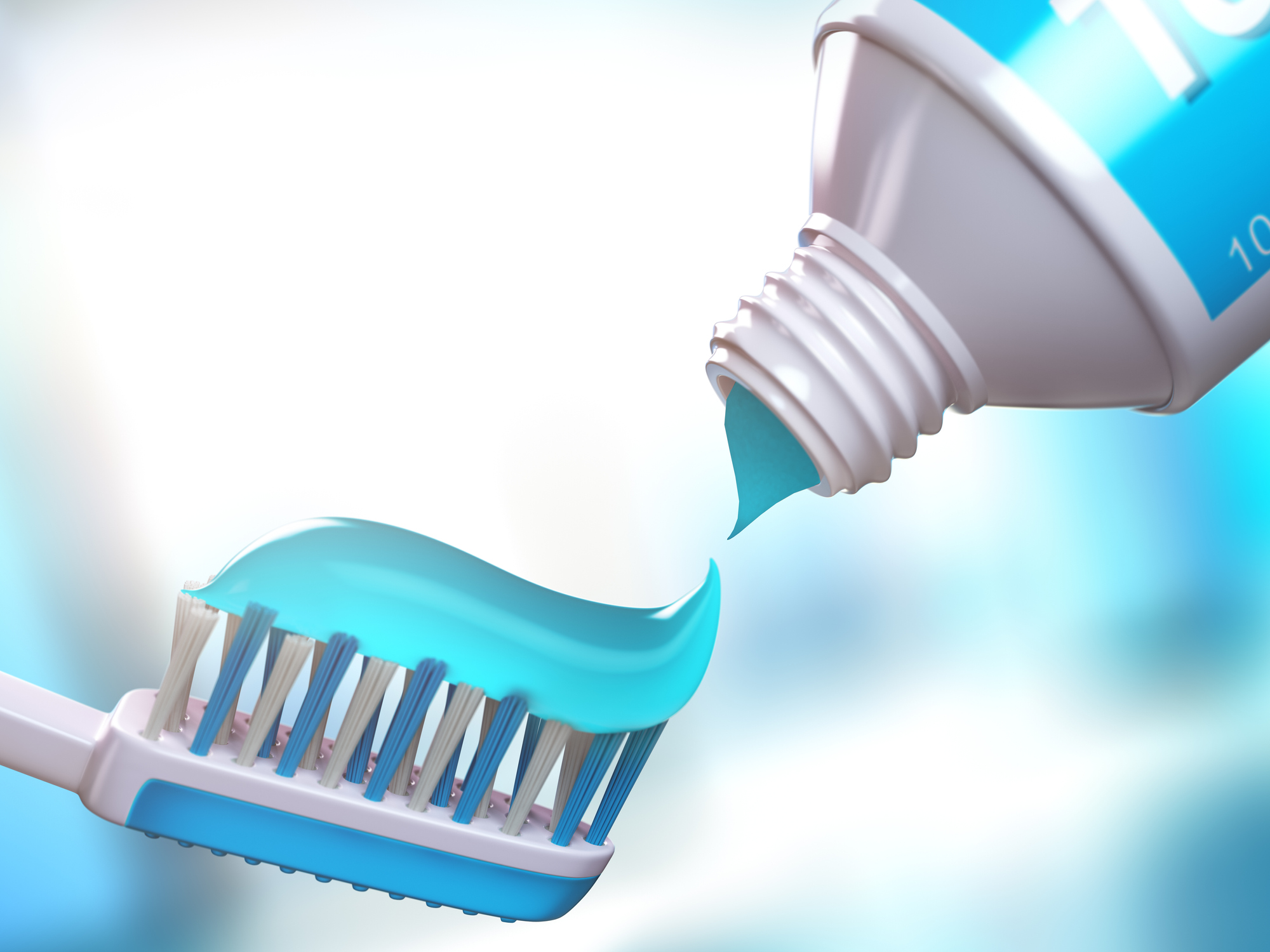
Buying toothpaste seems like it would be a simple process. When confronted by shelves and shelves of options, though, it can quickly become complicated. Add in some social media ads about alternative toothpastes and it’s understandable that you might be completely confused. Not to worry! We’ve got some tips to make buying your next tube of toothpaste simple.
- Make sure the toothpaste you pick is ADA approved. Toothpastes with the ADA seal of approval are safe to use and guaranteed to be effective.
- Check for fluoride. Fluoride helps prevent tooth decay by strengthening your tooth enamel. When you use toothpaste with fluoride, you can maintain and, in some cases, improve your oral health. There are two types of fluoride found in toothpastes, stannous fluoride and sodium fluoride, with stannous being the more effective type.
- Take a close look at the ingredients. Sodium laurel sulphate (SLS), for example is a controversial ingredient. While it’s useful for cleaning the teeth, removing bacteria, plaque, and food particles, there is also evidence that it can contribute to sensitivity and cause mouth ulcers for some people. If your teeth are sensitive, avoid SLS. If you do use it, don’t swallow it, because it can negatively impact your health. People with sensitive teeth might wish to look for potassium nitrate and strontium chloride, which can help desensitize teeth. Be wary of triclosan because this common bacteria-fighting ingredient may actually contribute to bacterial resistance.
- Consider your specific needs in dental care. Are you looking for better tartar control? Tooth whitening? Desensitizing? Gum health? Think about what you’re hoping to achieve with your oral care and that will help inform your toothpaste decision.
- Think about flavor and texture. While it may seem frivolous to choose a toothpaste based on the way it feels and tastes, it’s actually an important piece of the puzzle when you’re shopping for the right toothpaste for you. If you don’t like the way your toothpaste tastes, brushing your teeth will be less appealing.
- What about alternatives to traditional toothpaste? There are some toothpastes that use unconventional ingredients and are somewhat trendy, but are they as effective as traditional toothpaste? Probably not. For instance, toothpastes that use aloe vera aren’t likely to fight plaque or gingivitis any more effectively than other toothpastes, and most aloe vera toothpastes lack fluoride. Charcoal is another trendy toothpaste ingredient, but it may do more harm than good, because it is abrasive and can damage your tooth enamel.
- Ask your dentist for recommendations. When in doubt, ask a professional! Your dentist is an expert not only on tooth care but also on your unique oral health history.
If you’re looking for a dentist in New York, choose the practice that was voted best dentist in NYC! At Park 56 Dental Group, we offer pediatric, prosthodontics, endodontics, oral surgery, Invisalign®, emergency, and sedation dentistry, all at the highest level of treatment. We serve the Midtown, Central Park, Upper East Side, Park Avenue, and all surrounding Manhattan and New York areas, with a patient-centered practice that has hours to fit your schedule. Schedule your complimentary consultation today by contacting us online or calling us at (212) 826-2322.
-
How Dieting Can Cause Bad Breath

Over the past ten years, there has been a lot of debate about low-carb diets such as the Keto and Atkins diets. Most of this discussion is about how they work, and whether they help people keep weight off for a long period. An overlooked aspect of these diets is their tendency to cause bad breath, also known as halitosis. Some people have taken to calling this phenomenon “keto breath.” How does this happen?
One of your body’s main sources of energy is glucose. Glucose is formed when your digestive system breaks down carbohydrates from complex sugars into simple glucose molecules. When you eat fewer carbohydrates, your body has to find other fuel sources (primarily fat) for energy. This metabolic state is known as ketosis.
When your body breaks down fatty acids, it creates a byproduct known as ketone bodies, or ketones. They come in three common forms: acetoacetate, beta-hydroxybutyrate, and acetone. These are regularly removed from your body when you exhale or urinate.
If you consume a low-carb diet, your body relies more on fatty acids for energy because you aren’t consuming as many carbohydrates. As you use up more fatty acids, more ketones are released as a byproduct of the metabolic process at work.
This surplus of ketones in your body can contribute to bad breath. But the ketones you exhale have very particular odors, which are mostly not like what you experience with normal diet bad breath.
There’s another bad breath factor with low-carb diets. The sudden transition from carbs to proteins changes how the body metabolizes food. The breakdown of protein creates ammonia. A sudden increase in dietary protein will only exacerbate this effect, increasing the amount of ammonia in your urine as well as your stomach gasses. Since it takes a lot of water to remove ammonia from your system, insufficient hydration can degrade your breath as this excess ammonia builds up in your body.
If low-carb diets have helped you, don’t despair. Some people on low-carb diets don’t develop bad breath. With others, it’s a temporary effect of the rapid diet change. And there are ways to mitigate the effect:
- Drink lots of water
- Use mints and/or gum to mask odors
- Brush your teeth at least twice a day
- Floss daily
- Transition slowly into your new diet and see how these changes affect you
If you’re experiencing halitosis, or if you just need the perfect place to get your teeth cleaned or fixed, choose the practice that was voted best dentist in NYC! At Park 56 Dental Group, we offer pediatric, prosthodontics, endodontics, oral surgery, Invisalign®, emergency, and sedation dentistry, all at the highest level of treatment. We serve the Midtown, Central Park, Upper East Side, Park Avenue, and all surrounding Manhattan and New York areas, with a patient-centered practice that has hours to fit your schedule. Schedule your complimentary consultation today by contacting us online or calling us at (646) 679-3989.
-
How to Prevent Plaque
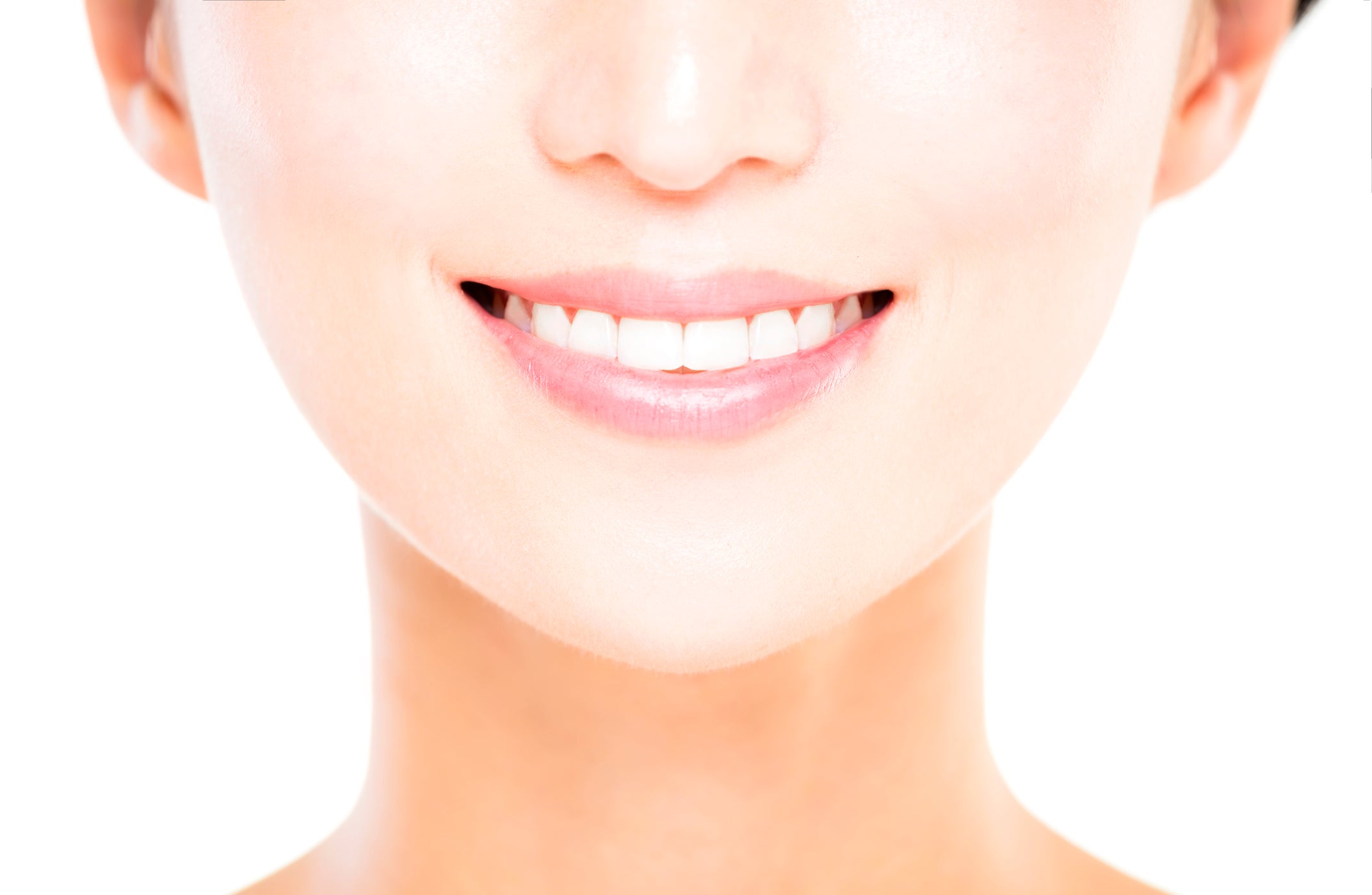
Everyone knows that if we don’t take care of our teeth we can get cavities. One cause of cavities is the buildup of plaque, which can also cause gum disease. Here’s an overview of what plaque is and how we can prevent it.
Everyone has dental plaque to some extent. Plaque causes a slight fuzziness on your teeth that you can feel with your tongue. It’s a sticky film of bacteria that is constantly developing on the surface of your teeth. The bacteria in plaque produce acids after you eat or drink. These acids can destroy your tooth enamel, leading to cavities and also gingivitis aka gum disease.
Plaque can also form under your gums and on your tooth roots. They can break down the jaw bones that support your teeth. If left untreated, plaque can harden into tartar, which is harder to remove. Proper dental hygiene habits, most importantly daily brushing and flossing, gets rid of a lot of this plaque. If you don’t like using normal dental floss there are options for you, including dental picks, pre-threaded flossers, brushes that fit between your teeth, water flossers or wooden plaque removers. Mouthwash is useful for loosening plaque so you can brush it off better, or spit or rinse it out of your mouth. But be careful to not get a kind that will dry your mouth out, because that actually makes your mouth more vulnerable to plaque formation.
Although we all get plaque, you may be more susceptible to plaque formation if you:
- Smoke
- Have dry mouth due to medical conditions or medications
- Have a history of head or neck radiation
Your diet is also an important factor for plaque formation. Plaque can form quickly when the bacteria in your mouth mixes with sugary or starchy foods such as soft drinks, milk, juice, fruit, pasta or bread. These bacteria release acids that break down carbohydrates in food and drinks, so they do serve a useful function in that regard. Plaque is clearly a downside. Many dentists will tell you that you can eat or drink pretty much whatever you like, as long as it’s in moderation. Whenever possible, drink water or brush your teeth right after consuming these problematic foods or drinks, to get that dangerous stuff off your teeth before they can help form plaque.
Regular dental cleanings are important too, because there are spaces that are hard for you to clean on your own. Dentists and dental hygienists have special tools to find and remove plaque.
If you’re looking for the perfect place to get your teeth cleaned or fixed, choose the practice that was voted best dentist in NYC! At Park 56 Dental Group, we offer pediatric, prosthodontics, endodontics, oral surgery, Invisalign®, emergency, and sedation dentistry, all at the highest level of treatment. We serve the Midtown, Central Park, Upper East Side, Park Avenue, and all surrounding Manhattan and New York areas, with a patient-centered practice that has hours to fit your schedule. Schedule your complimentary consultation today by contacting us online or calling us at (646) 679-3989.
-
How Root Canals Can Improve Your Smile and Dental Health

Have you ever heard a character in a movie or TV show say “I’d rather have a root canal?” That’s a reference to a dental procedure that used to be quite painful and complicated but, due to medical advancements, no longer has to be. The weird thing is, most people don’t even understand what the procedure is, or how much it can improve your smile and your dental health. If you’ve ever wondered about this topic, we’re here with the details.
Before the root canal procedure was invented, a tooth with a diseased nerve had to be taken out. Today it can often be saved with a fairly simple procedure involving one to three office visits, and with minimal downtime. And in contrast to old methods, it can be done virtually painlessly.
After a tooth has emerged through the gums, the only real function of the root is to detect heat or cold. When a tooth develops a crack or a deep cavity, germs can enter the pulp tissue and cause an infection inside the tooth. If this is left untreated, an abscess may form, and if the infected tissue is not removed, pain and swelling can result. This can also injure your jawbones and cause other health issues.
Teeth with infected roots aren’t always painful, but signs you may need a root canal include severe toothaches, pain when chewing or applying pressure, prolonged sensitivity or pain in response to hot or cold temperatures, a dark discoloration of the tooth, and swelling or tenderness of the adjacent gums. If you experience any of these symptoms, contact your dentist.
During a root canal procedure, your dentist or endodontist (a dentist who specializes in dental nerves) removes the affected tissue. Then the interior of the tooth is cleaned and sealed. Finally, the tooth is filled in with a dental composite. If your tooth has extensive decay, your dentist may want to place an artificial crown on your tooth to protect it from breakage. If you take good care of your teeth with regular brushing, flossing, and dental checkups, your restored tooth can last a lifetime.
If you think your teeth may have damage that requires a root canal procedure, choose the practice that was voted best dentist in NYC! At Park 56 Dental Group, we offer pediatric, prosthodontics, endodontics, oral surgery, Invisalign®, emergency, and sedation dentistry, all at the highest level of treatment. We serve the Midtown, Central Park, Upper East Side, Park Avenue, and all surrounding Manhattan and New York areas, with a patient-centered practice that has hours to fit your schedule. Schedule your complimentary consultation today by contacting us online or calling us at (646) 679-3989.
-
What Are Our Teeth Made Of?
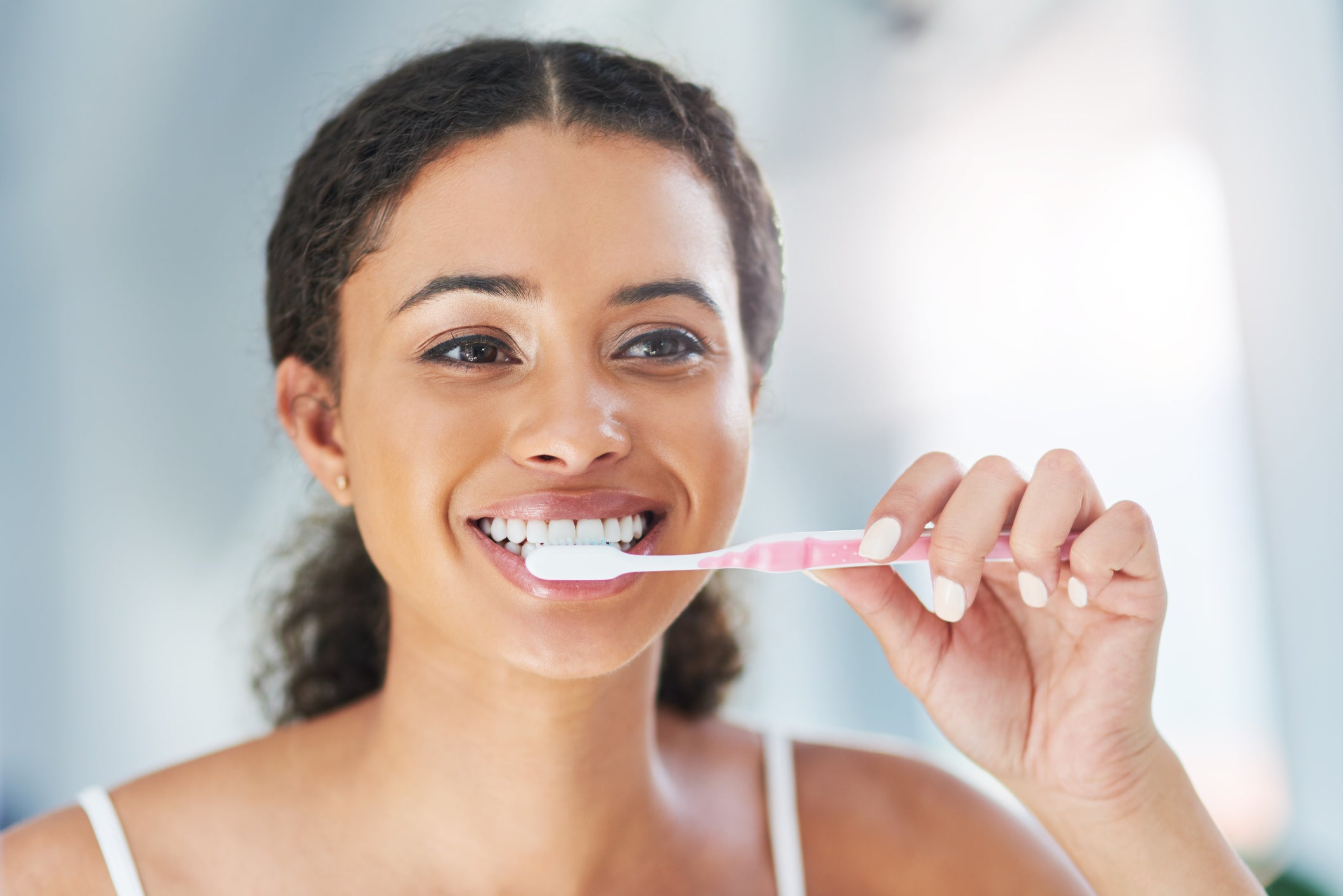
Most people know the basics of dental care, but how many of us really know the anatomy of our teeth? Here’s a short overview of what our teeth are made of.
Crown
Quite simply, the crown is the part of the tooth that you can see.
Enamel
The hardest tissue in your whole body is the enamel of your teeth, which forms the outermost layer of the crown. This substance is why your teeth can withstand the pressure from chewing hard foods. It also protects your teeth from harmful bacteria and acids, as well as hot and cold foods. Enamel mostly consists of calcium phosphate, a rock-hard mineral.
Dentin
Right below the enamel is a yellowish material called dentin. It is a hard tissue made of microscopic tubes. When the enamel is damaged or worn away, heat or cold can enter the tooth through these tubes and cause pain. Every tooth is mostly dentin, which is why teeth have a slight yellowish tint. Like enamel, dentin mostly consists of apatite crystals of calcium and phosphate. This makes it hard as bone, but it’s not quite as hard as enamel.
Pulp
Below dentin is pulp, the softest, most alive and innermost portion of the tooth. Pulp consists of connective tissue , nerves, and blood vessels, which nourish your teeth. Pulp has two parts — the pulp chamber, which is in the crown, and the root canal, which lies in the root of the tooth. Nerves and blood vessels enter the root through a small hole in its tip and extend through the root canal into the pulp chamber.
Cementum
Cementum is a layer of connective tissue that secures the roots of your teeth firmly to your gums and jawbone.
A layer of cementum coats the exterior of the root, under the gum line, and binds the tooth into place within the jawbone. Cementum is as hard as bone, but it’s slightly softer than dentin. It consists of about 45–50% inorganic minerals and 50–55% organic matter (mostly collagen and glycoproteins) plus water.
Periodontal Ligament
The periodontal ligament, also called the desmodontium, is a fibrous joint that holds the root of each tooth in its bone socket. The periodontal ligament fibers are anchored in the cementum layer of the tooth and in the alveolar jaw bone. They hold the teeth in a state of sprung suspension, which means that each tooth can move slightly within its alveolar bone socket.
If you’re looking for the perfect place to get your teeth cleaned or fixed, choose the practice that was voted best dentist in NYC! At Park 56 Dental Group, we offer pediatric, prosthodontics, endodontics, oral surgery, Invisalign®, emergency, and sedation dentistry, all at the highest level of treatment. We serve the Midtown, Central Park, Upper East Side, Park Avenue, and all surrounding Manhattan and New York areas, with a patient-centered practice that has hours to fit your schedule. Schedule your complimentary consultation today by contacting us online or calling us at (646) 679-3989.
-
Why it’s Important to Clean Your Tongue

You brush at least twice a day and floss at least once, but what about cleaning your tongue? If you’re like most people, you probably neglect this important part of dental hygiene. While people are taught from childhood about the importance of brushing and flossing, tongue care is an often neglected subject. It’s vital to oral health, though, and here are some reasons why.
- Your tongue is a breeding ground for bacteria. In fact, most of the bacteria your mouth can be found on the rough surface of your tongue. When you brush your teeth, you remove bacteria from your teeth. However, saliva carries bacteria from your tongue back to your teeth in just a few hours.
- Neglecting to brush your tongue leads to bad breath. All the bacteria hanging out on your tongue can cause odor. Cleaning your tongue can prevent halitosis.
- Cleaning your tongue reduces your risk of periodontal disease. Gum disease is a real problem that can lead to illnesses throughout the body. When you remove the bacteria from your tongue, there’s less of a chance that it can lead to gum infection.
- Your taste buds will thank you for cleaning your tongue. Bacteria on your tongue can coat your taste buds and mute the flavors of your food. Want to enjoy more rich flavors? Clean your tongue.
- Regularly cleaning your tongue makes you less likely to develop oral thrush. An infection caused by overgrowth of yeast in the mouth, oral thrush can be the result of excessive bacteria in your mouth. You may develop white patches on your tongue that require treatment with an antifungal medication. You can keep this infection at bay, however, by regularly cleaning your tongue.
- Your immune system benefits from a clean tongue. The health of your mouth has a major impact on the health of your body and your tongue works to boost your immune system. Toxins build up on your tongue, and when you clean them off, you’ll prevent them from being absorbed into your body. You’ll have better overall health and stronger immune function.
So, what’s the best way to clean your tongue? Rinsing won’t do the trick; you’ll have to use your toothbrush. Beginning at the back of your tongue, work your way towards the front of your mouth, brushing back and forth, side to side, over the entire top surface of your tongue. Brush firmly but gently enough to avoid breaking the skin. To keep a healthy mouth, brush your teeth and tongue at least twice a day, floss daily, and keep regular appointments with an experienced, well-qualified dentist.
If you’re looking for the perfect dentist, choose the practice that was voted best dentist in NYC! At Park 56 Dental Group, we offer pediatric, prosthodontics, endodontics, oral surgery, Invisalign®, emergency, and sedation dentistry, all at the highest level of treatment. We serve the Midtown, Central Park, Upper East Side, Park Avenue, and all surrounding Manhattan and New York areas, with a patient-centered practice that has hours to fit your schedule. Schedule your complimentary consultation today by contacting us online or calling us at (212) 826-2322.
RECENT POSTS
categories
- Uncategorized
- Cosmetic Dentistry
- Veneers
- Healthier Teeth
- Teeth Whitening
- Dental Health
- Video
- Dental Emergencies
- Invisalign
- Dental Implants
- Root Canal
- Sedation Dentistry
- Infographic
- Dental Crowns and Bridges
- Dental Anxiety
- Gum Disease
- COVID-19
- Bad Breath
- New York Dentist
- Cut out sugar
- General Dentistry
- Oral Health
- Oral Cancer
- Dry Mouth
- Gum Health
- Toothache
- Dental Sealants
- Cavities



